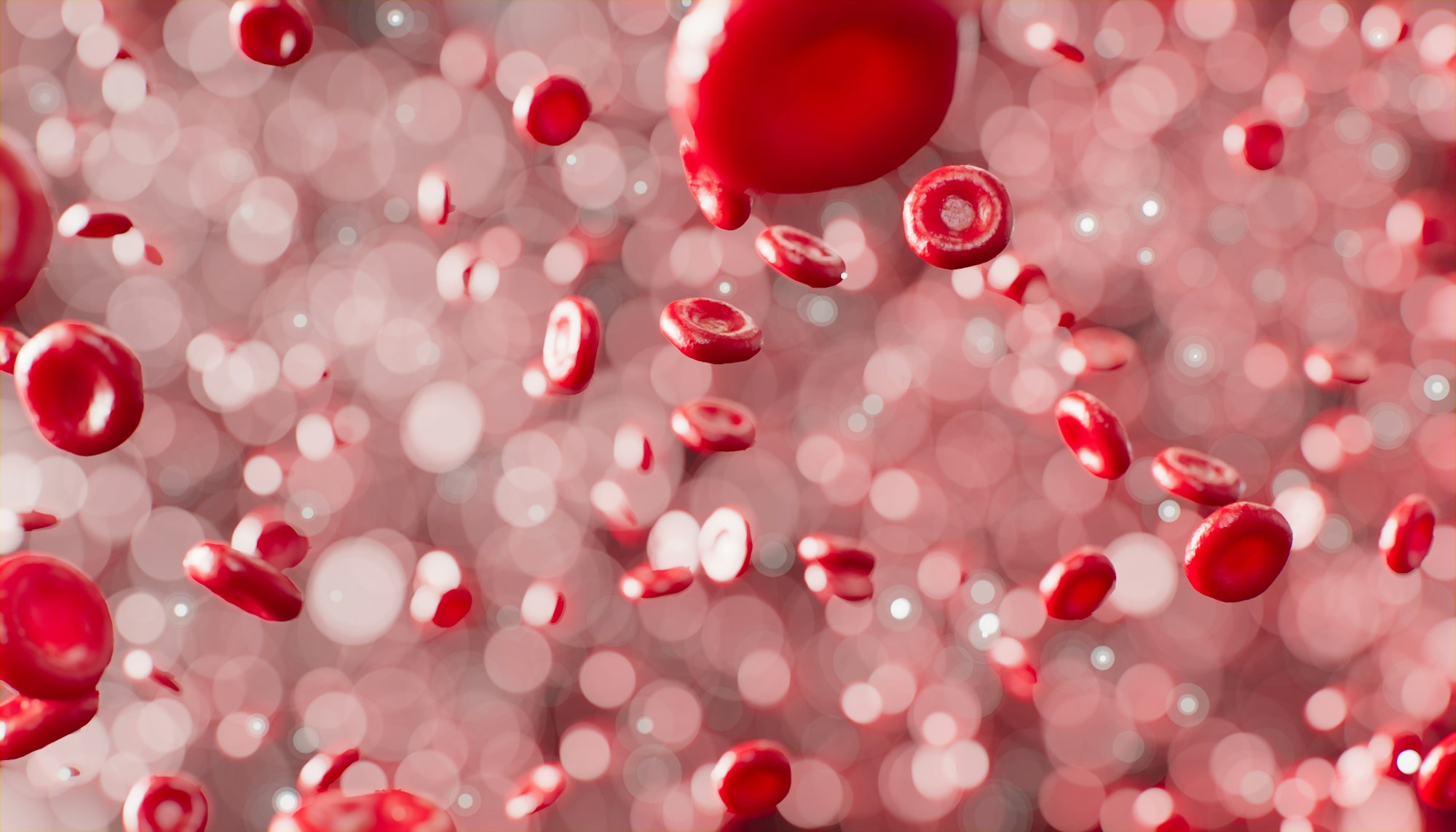We've updated your Atlas DNA Test Results with multiple new reports! Now you can discover whether you have a predisposition for periodontal disease, intense itching from mosquito bites and a taste for white wine! We have also added information about rare blood types, such as the MNS phenotype.
Table of contents:
- Science is dynamic, and so are your results!
- A quick lowdown on genetic mutations
- New reports in Other traits
- New reports in Sports traits
- The Atlas DNA Test: the gift that keeps on giving
Science is dynamic, and so are your results!
Scientists worldwide are constantly looking at how specific genetic variants affect individual traits and disease risk. As a result, numerous papers emerge every year identifying novel associations.
Here at Atlas, we follow this information closely and make sure to update the results of your genetic tests to reflect new findings. Before we add any information to your account, the data passes through a rigorous internal review by genetic and microbiome experts.
A quick lowdown on genetic mutations and gene variants
Many of the health reports we have added are related to specific genetic mutations. But this begs the question, what is a genetic mutation? Simply put, genetic mutations are random changes in the DNA sequence that can be caused by environmental factors or inherited at birth.
Genetic mutations can be beneficial, harmful or neutral; for example, some mutations can predispose an individual to cancer, whilst others confer lactose tolerance and increased endurance. Others are harmless but have an undeniable curiosity factor; certain variants might predispose you to smell flowers more intensely or sneeze when exposed to the sun! Mutations are responsible for the massive diversity we see among species.
☝FUN FACT☝ The Finnish Skier, Eero Mäntyranta, was suspected of using performance-enhancing drugs because his red blood cell count was freakishly high. It turned out that this was a result of a mutated gene that ran in his family and was partly responsible for his unparalleled endurance. He won seven Olympic medals in his lifetime!
New reports on the Other traits section.
We've added new reports to the Other Traits and Sports section of your health dashboard in the latest update. All of these updates are now available in your Personal Account. Here is a quick rundown of what's new:
Susceptibility to Helicobacter pylori
Helicobacter pylori is a bacterium common in the stomach and duodenum of humans. Helicobacter pylori infections are the primary cause of gastritis, a disease characterised by inflammation of the stomach lining. H. pylori bacteria can also lead to stomach ulcers and increase your risk of stomach cancer.
We now know that your susceptibility to Helicobacter pylori is affected by the genetic variant rs10004195 in the TLR1, TLR6 and TLR10 genes. All of these genes are involved in the regulation of your immune response. If we detect these gene variants in your DNA test results, the Atlas Dashboard will provide information on how to spot, prevent and manage an H. pylori infection.
☝DID YOU KNOW?☝ The reigning view used to be that lifestyle factors, such as stress, were responsible for stomach ulcers and gastritis. We now know that they are caused by bacterial infections such as Helicobacter pylori. We all have the Australian scientist Barry Marshall to thank for this. To prove his theory, he deliberately ingested H. Pylori, giving himself gastritis in the process. He earned the Nobel Prize for his discovery in 2005 and hopefully had a more pleasant cocktail to celebrate!
Periodontitis predisposition
Periodontal disease is a common oral condition that causes inflammation of the gums and deterioration of the tissues supporting the teeth. Untreated, it can result in tooth loss.
The genetic variant rs1537415 in the GLT6D1 gene has been linked to the risk of periodontitis. We do not know exactly how the changes in the gene affect the risk of gum inflammation, but there is a clear association. We have added a new report on your genetic predisposition for this disease to reflect these findings.
Blood characteristics

You now have information about your AB0 and MNS blood types in your Personal Account.
Blood is made up of three components, namely red blood cells, white blood cells and platelets, which are present in plasma. Your blood group is determined by which antibodies and antigens are present in the blood.
If you do not know your blood type, the personal office now has information on this, including AB0 and MNS blood type classification systems. How can we know this without taking blood?
In short, around 85% of people yield positive blood type results from saliva samples, owing to the fact that they produce antigens in their spit. In addition, we have added essential information about rare blood types that can help you prepare for surgery and blood transfusions.
If you receive an incompatible blood type during a transfusion, it can result in a life-threatening immune reaction. This is because your antibodies trigger an immune response and attack the foreign red blood cells.
ABO blood group
There are 43 known classification systems for blood types. The most important are ABO and Rh (Rh factor). The ABO system is based on the A and B molecules that code for the ABO gene. Within the ABO system, there are four main groups: O, A, B and AB.
Mixing blood of different groups during transfusion leads to the destruction of red blood cells and the formation of blood clots in blood vessels. Red blood cells can also contain another protein called the RhD antigen. Those with this antigen are labelled RhD positive and those without RhD negative. For this reason, there are eight common blood types, namely:
- A RhD positive (A+)
- A RhD negative (A-)
- B RhD positive (B+)
- B RhD negative (B-)
- O RhD positive (O+)
- O RhD negative (O-)
- AB RhD positive (AB+)
- AB RhD negative (AB-)
Alongside these eight are two rare blood groups, namely MNS and the Bombay phenotype. If not detected, these can lead to severe complications during blood transfusions.
☝DID YOU KNOW?☝ Blood group O is the most common blood group. Almost half of the UK population (48%) has blood group O.
MNS blood group
The MNS system is based on M, N and S antigens. Two genes synthesise these molecules, known as glycophorin A (GYPA) and glycophorin B (GYPB). Antibodies to the M and N molecules generally have no clinical significance. In contrast, antibodies to the S molecules can cause red blood cell breakdown in blood transfusions and hemolytic jaundice in newborns.
☝️DISCLAIMER☝The information you receive does not replace standard laboratory tests for determining your blood type and Rh factor.
Mosquito bite-size and itch intensity

When a mosquito bites you, a small amount of their saliva enters the skin. This can cause itching, redness and swelling. The intensity of swelling and itching varies from person to person, largely depending on which genes the person carries.
Many genetic variants are associated with both the size and irritation a person experiences after a mosquito bite, most notably the IL21 and BBS12 genes. Those with these variants now have updated information on why they may suffer more from mosquito bites and how to alleviate the condition.
☝Fun Fact?☝ Humans are only bitten by female mosquitoes.
Tendency to prefer white wine

Many factors influence our taste preferences, including our environment and, yes, you guessed it, our genetics. For example, we now know that a person's fondness for different types of wine is at least partly genetically determined.
Simply put, those who report a taste for white wine often share a variant in the HLA-DOA gene. It is thought that this preference might be influenced by how these individuals perceive aromas. We have added a whole new report on this taste preference in your results. Next time a waiter asks you if you would like the red or the white, you can show him your Atlas results!
New report in the Sport traits sections
Fat and lean body mass
Combined, both body fat mass and lean body mass compose our total body mass. These indicators are essential for the health and proper functioning of the human body.
Scientists have found four genetic variants associated with fat and fat-free body mass, all of which are linked to the IRS1, PIK3R1 and MC4R genes. You now have a report telling you whether people with your genotype are predisposed to an increase in fat mass or lean mass. We’ve also added a section explaining the difference between “body fat mass” and “lean body mass” and instructions on how to measure these.
Atlas DNA Test: The gift that keeps on giving
We constantly strive to improve your results and ensure there is new information for you to discover. To this end, we continually update the dashboard to reflect the latest findings and give you interesting genetic insights, whether you tested a year ago or a week ago.
Ultimately, when you purchase an Atlas DNA Test, you invest in health insights for years to come; it really is the gift that keeps on giving!
☝IMPORTANT NOTICE☝ If you sent off your samples before November 2019, some of the new traits cannot be identified and will not be available on your dashboard. These include the mosquito bite-size, white wine preference and fat/lean mass reports.
















